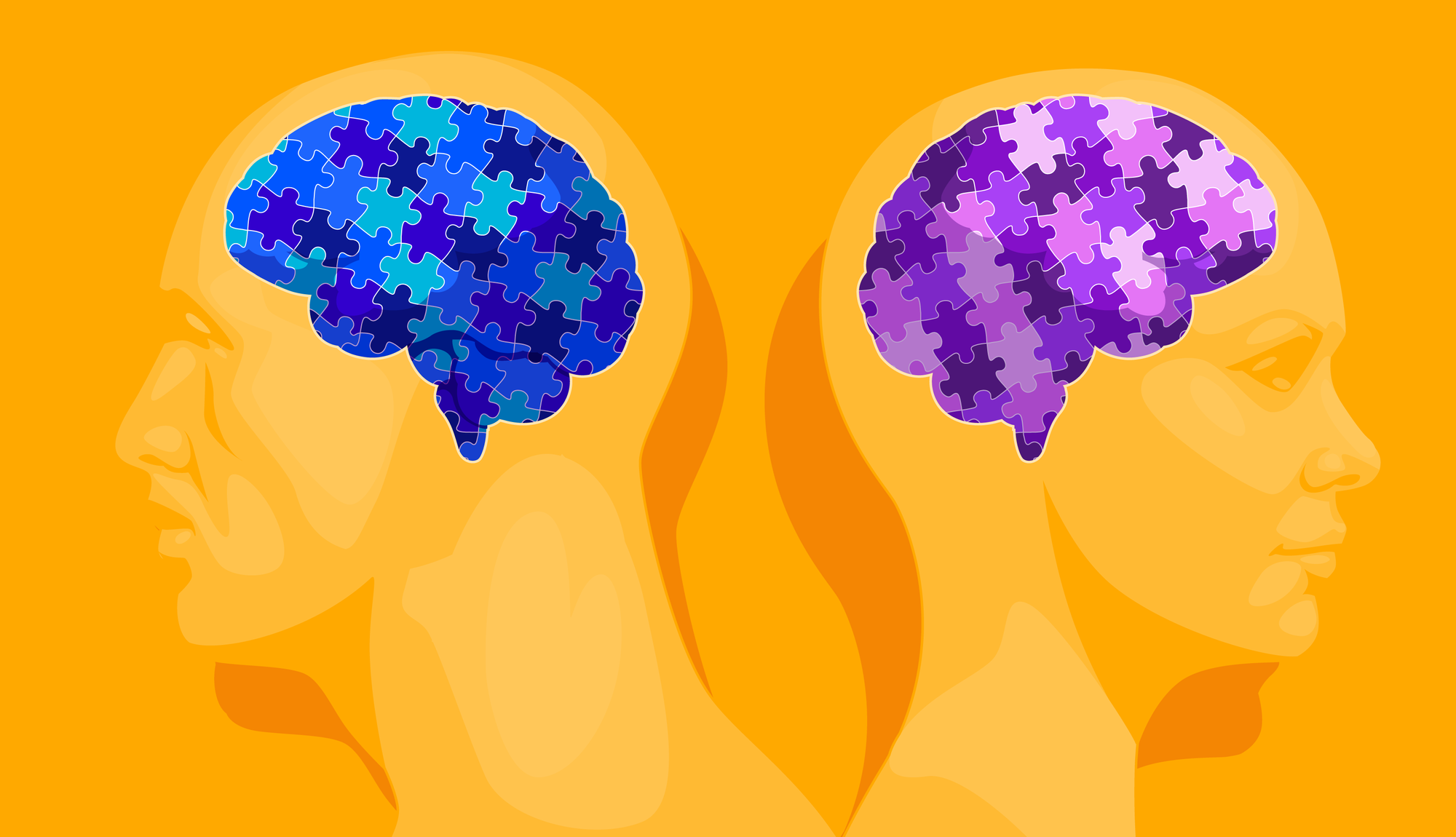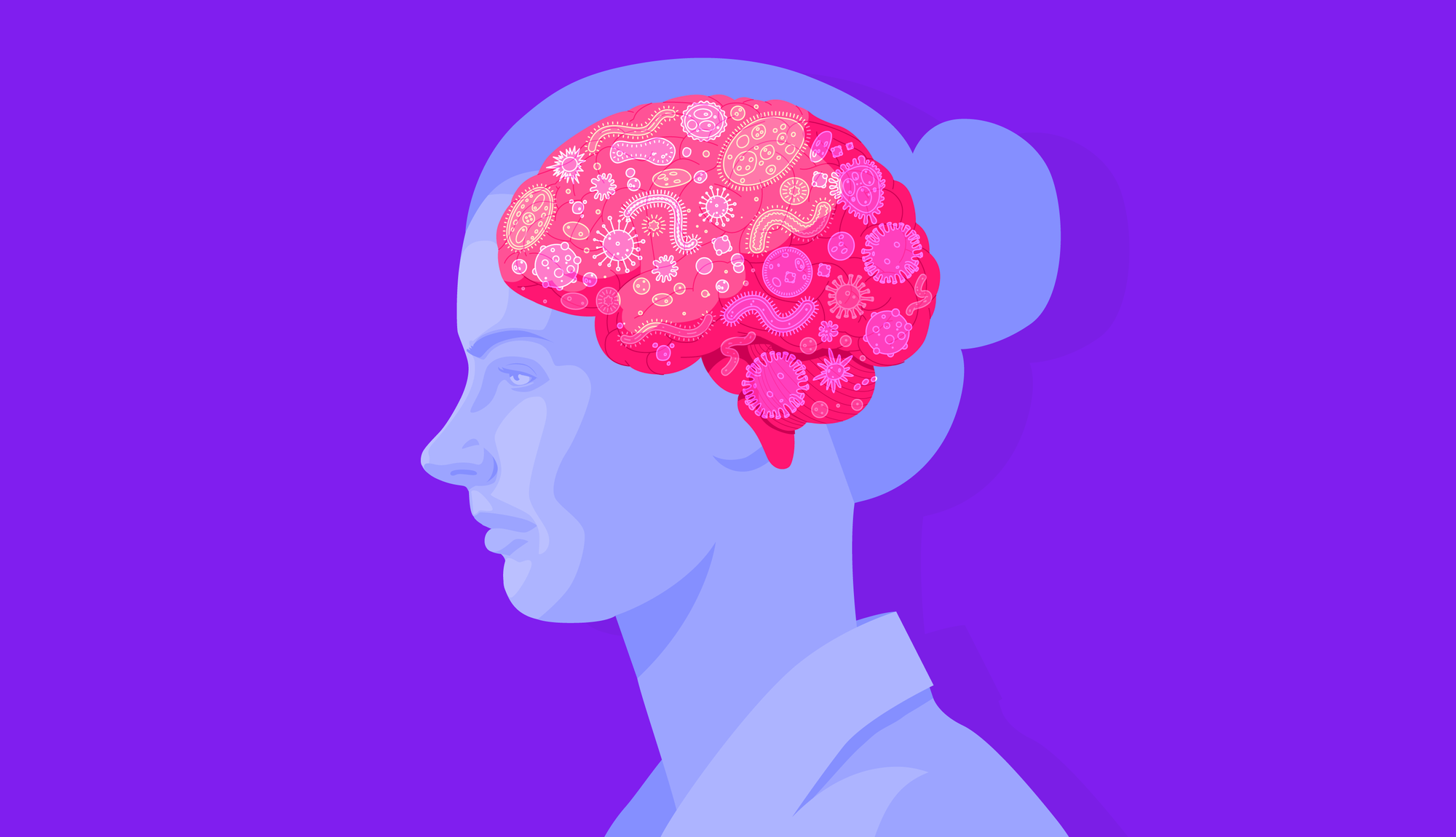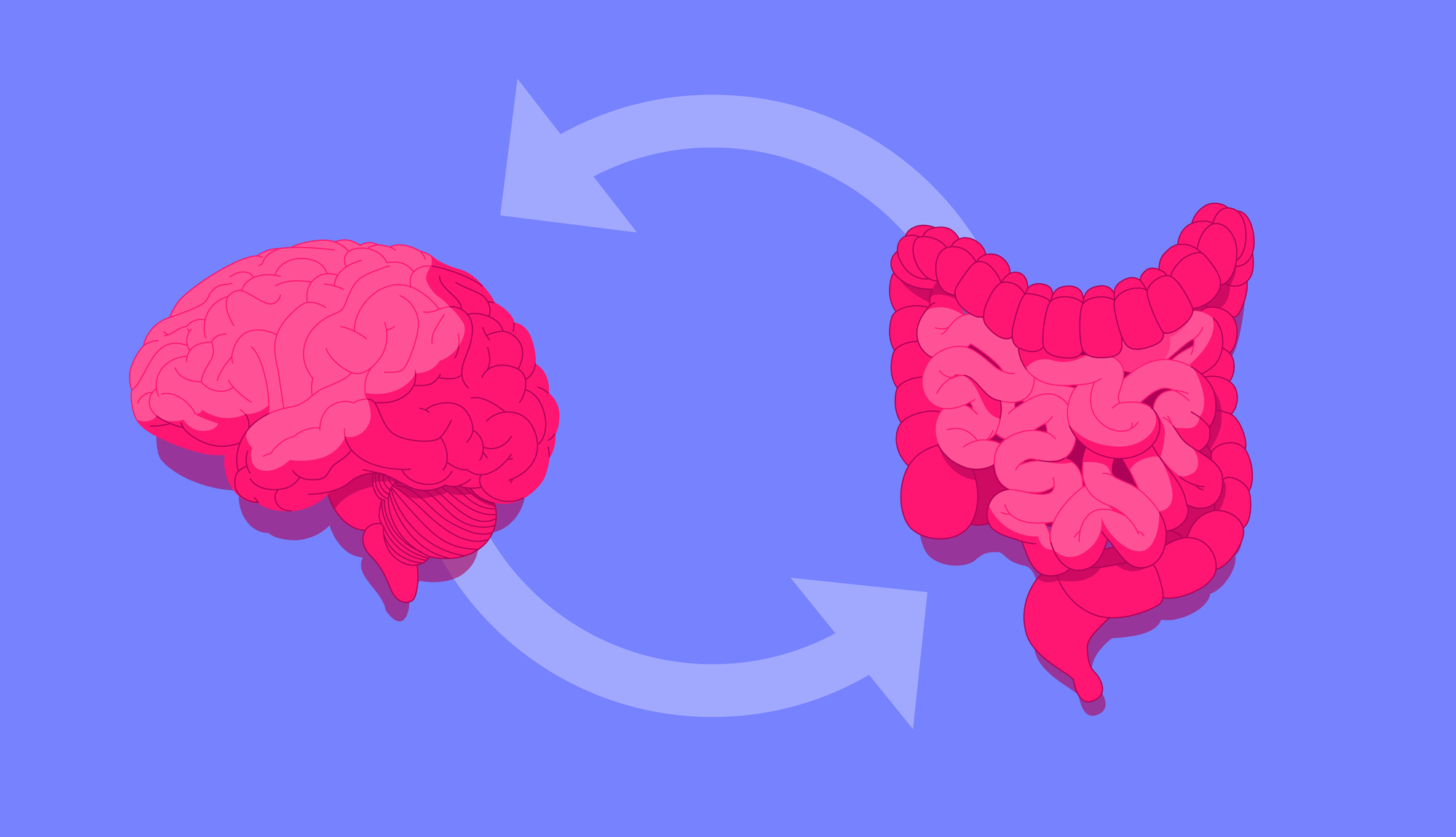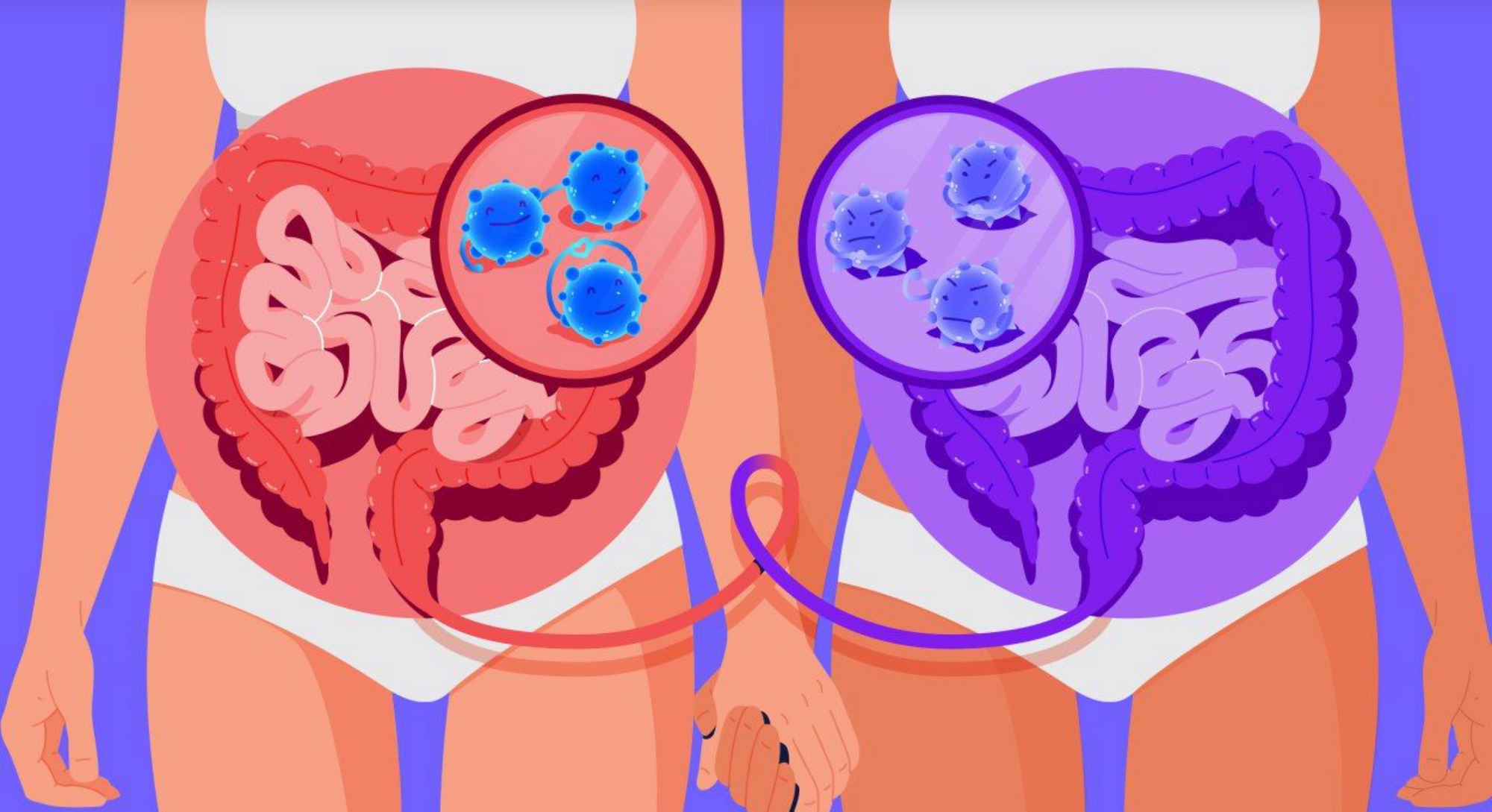Autistic children are four times more likely to experience gastrointestinal issues than neurotypical children, and several studies suggest they have atypical microbiome profiles. We explore the link between the microbiome and ASD, ultimately seeking to establish whether there is a causal link between the two.
- What is Autism?
- Can microbes influence the mind?
- autism and the microbiome: what's the link?
- Targeting autism via the gut microbiome
- What comes first, dysbiosis or Autism?
- Article summary
What is Autism?

Autism Spectrum Disorder (ASD) is a lifelong developmental disorder affecting around 1 in 100 people globally.
The condition is more common in males than females and exists on a spectrum, meaning the abilities and needs of autistic individuals vary drastically.
- Difficulty understanding social cues and maintaining eye contact
- Repetitive behaviours (lining up toys, rocking back and forth, spinning in circles)
- Hypersensitivity to stimuli (noise, colour and texture)
- Restricted interests (only eating specific colours, shapes or textures, for instance)
- Excessive preoccupation with details
The causes of autism remain highly elusive, although a confluence of environmental and genetic factors likely plays a part.
One thing we do know is that autism isn't triggered by emotional deprivation in childhood, as once believed.
☝DID YOU KNOW?☝ According to one study, up to 40% of children with ASD experience Gastrointestinal issues.
Can microbes influence the mind?
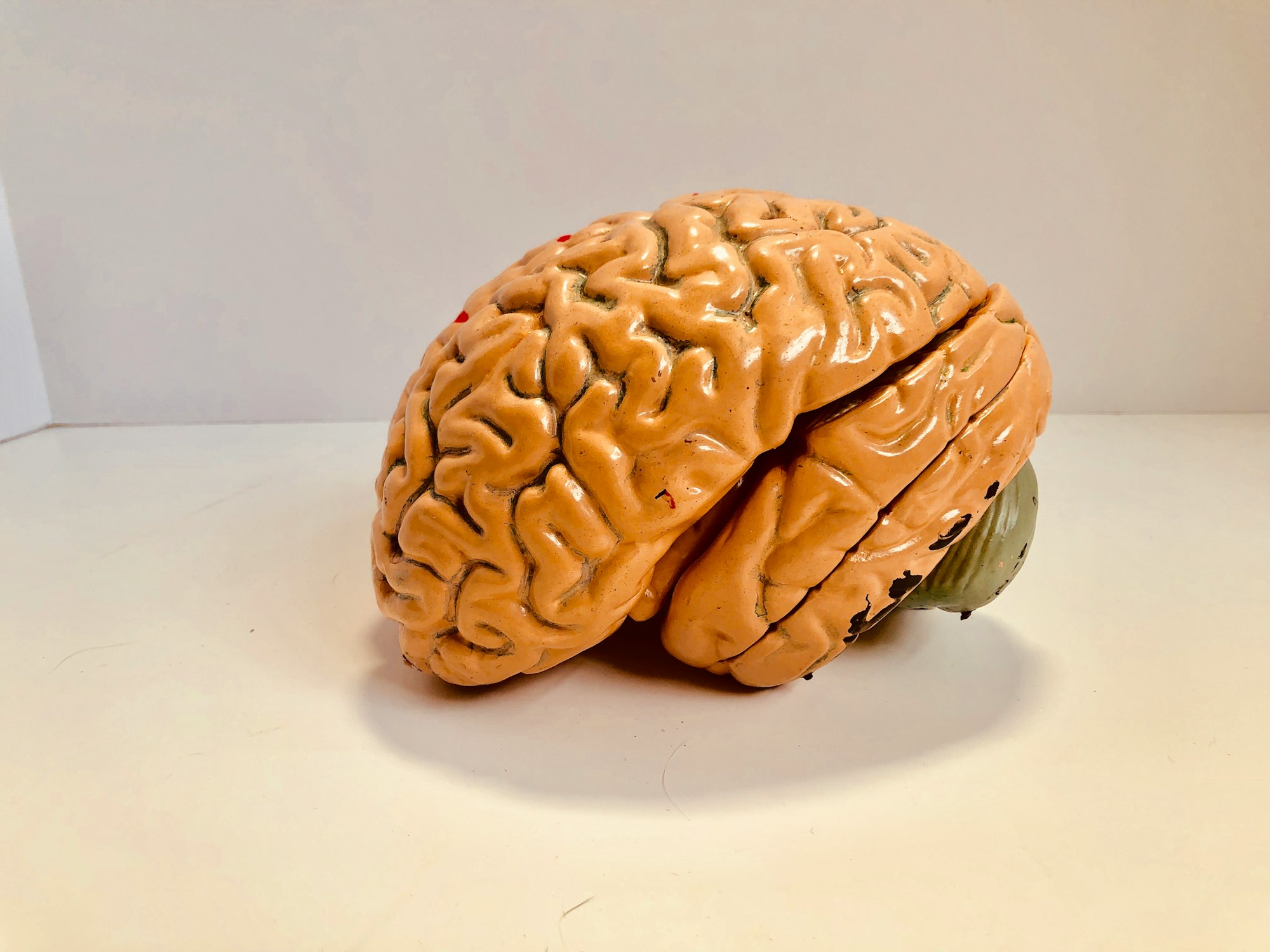
Humans live in symbiosis with their resident microbes, which is a scientific way of saying: "If you scratch my back, I'll scratch yours".
In short, we offer our microbiota space and nutrients whilst they provide numerous services that benefit our health.
Among them, gut bacteria train the infant immune system, synthesise anti-inflammatory compounds and protect against pathogenic bacteria.
Most tantalising of all, mice studies suggest that the gut microbiome may be able to influence our behaviour, acting via the gut-brain axis.
Similarly, researchers can make a timid mice species bold and vice versa by transplanting them with each other's microbiome, hinting at a causal relationship.
Autism and the microbiome: what's the link?
Autistic children disproportionately experience gastrointestinal symptoms, including bloating, stomach cramps, diarrhoea and constipation.
Additionally, several studies suggest that children with autism have atypical microbiome compositions, although no clear microbial signature has been established beyond some general consistencies.
It should be noted that these studies cannot reveal causation, preventing researchers from knowing whether dysbiosis causes autism or vice versa.
Coupled with the emerging animal research that bacteria can influence the brain, some researchers have suggested that the microbiome may play a part in autism, driving or augmenting behavioural traits.
According to this theory, disruptions to the microbiome can increase intestinal permeability and allow bacterial metabolites to escape into the blood via the gut.
In turn, this triggers low-grade chronic inflammation throughout the body with downstream effects on the brain. But does the theory have legs?
A potential connection between gut bacteria and autism emerged in the 1990s when a small group of autistic children experienced behavioural improvements after taking antibiotics.
Considering that these can kill specific bacteria, it could indicate that microbes play a role in hallmark autistic behaviours.
A 2000 study found that 8 out of 10 autistic children who took vancomycin reported temporary improvements in speech and sociability. The findings seeded hopes that the microbiome could be a new frontier in autism research.
Furthermore, when the microbes from these mice were transplanted into germ-free recipients, they also exhibited autism-like behaviours.
A study in 2019 made headlines when researchers transplanted germ-free mice with microbes from autistic children, reporting that the mice began to exhibit behaviours characteristic of the condition.
Tellingly, a parallel group of mice transplanted with microbes from non-autistic humans showed no such behavioural changes.
The researchers proclaimed that their results strongly suggest a causal role for the microbiome in hallmark autistic behaviours.
Soon after its publication, the paper was heavily scrutinised for errors in its data analysis methods.
Critics claimed that the statistical analysis overstated the autism-like behaviours, as reported in Spectrum news.
Besides these data analysis issues, many have questioned the value of mice studies in autism research.
According to critics, mice are a poor proxy for understanding human behaviour as they cannot be diagnosed as "autistic".
For all we know, mice models of autism may be unsociable due to gastrointestinal issues, as opposed to neurodevelopmental differences.
Targeting autism via the gut microbiome
The research exploring microbiome-targeted treatments for autism is extremely scarce but not without promise.
A systematic review published in the Journal of Autism Research looked at 14 trials, all measuring the effect of microbiome-targeted therapies (probiotics, synbiotics and faecal microbiota transplant) on ASD.
The results did not support any potential benefits for probiotics in those with ASD. However, prebiotics and synbiotics (a mixture of multiple probiotics) appeared effective in treating some behavioural symptoms.
The evidence for faecal microbiota transplants (FMT) in the treatment of autism was deemed scarce, but the paper said further research is warranted.
FMT is where a person receives a faecal sample from a healthy donor, either via ingestion or colonoscopy, to help re-shape their gut microbiome.
In 2017, researchers at Arizona State University transplanted 18 autistic children with microbes from non-autistic donors. All the participants had experienced severe co-morbid gastrointestinal issues since childhood.
Soon after receiving an FMT, the subjects experienced marked improvements in GI symptoms and autism-related behaviours.
Better still, the benefits endured, with subjects still showing significant improvements in a 2-year follow-up study.
The participants experienced further improvements in autism symptoms after treatment, parallel to an increase in microbiome diversity and enrichment in Prevotella and Bifidobacteria species.
For comparison, 83% of participants were rated as having severe ASD at baseline, whilst only 17% were rated as severe in the 2-year follow-up.
The parents of the children also observed significant improvements in their social responsiveness; whilst 89% of participants were in the severe range at the beginning of the trial, the percentile dropped to 47% at the two-year follow-up.
Interestingly, the improvement in autism symptoms was significantly correlated with improved GI symptoms, which can be interpreted in two ways.
Firstly, it could suggest that improved gastrointestinal issues worsen autistic behaviours directly, triggering distress and hindering the ability to focus.
Alternatively, it could also suggest that gastrointestinal symptoms and autistic behaviours result from another causal factor, such as microbiome composition.
Before you pronounce the study as a slam dunk, it's important to note its limitations. Not only was the study non-randomised, but it also lacked a control group and a placebo.
As such, it's not possible to say whether the improvements would have occurred naturally, if the microbial transplant drove the improvements or whether the observed benefits were due to a placebo effect.
☝WARNING☝ DIY faecal transplants are highly dangerous and can result in deadly complications. They should only ever be undertaken by a qualified professional in a sterile environment, using samples which have been properly screened.
What comes first, dysbiosis or autism?
Autistic children commonly have rigid dietary preferences, opting for processed or beige foods over prebiotic fibres.
This is because processed foods, such as crisps or pastries, are more uniform in colour, taste and texture than fruits and vegetables.
In studies which compare microbiome composition between autistic and non-autistic individuals, it can be unclear whether dysbiosis preceded autism or whether restrictive eating triggers microbiome imbalances.
According to a large-scale study at Queensland University, the latter appears to be true.
In short, researchers compared microbiome composition (through faecal samples) between 99 autistic individuals and 97 non-autistic subjects. They also performed a side-by-side analysis of 51 autistic and non-autistic siblings.
The team collected clinical data on the participants' dietary habits, allowing them to control for this confounding variable.
After careful analysis, they found little difference between the autistic and non-autistic subjects' microbes, but they did find a correlation between an autism diagnosis and a restrictive diet.
A restrictive eating pattern has been repeatedly correlated with reduced microbiome diversity, suggesting that autistic behavioural traits may trigger microbial changes, not the other way around.
If the study's conclusions are correct, microbial imbalances are a symptom of ASD, not the cause. In other words, the microbiome-autism hypothesis put's the horse before the cart.
With that said, the study is far from the last word on the subject. For a start, further research is needed to confirm the findings.
Secondly, the study only examined the subjects at a snapshot in time, meaning they can't disallow the possibility that the microbiome influenced autism development before the study.
Lastly, at least one study suggests that FMT can improve autistic behavioural traits, suggesting a microbial component to ASD. Then again, it's possible that the treatment simply improved the sociability and communicative skills of autistic children by minimising digestive upset.
Pending high-quality clinical trials with large sample sizes, the link between autism and the microbiome remains unclear.
Article summary
You can be rich in knowledge even if you're time-poor with this short article summary:
- Animal research on mice suggests that our gut microbial composition may be able to influence behaviour via the gut-brain axis
- Autistic children are disproportionately affected by gastrointestinal issues such as bloating, cramps, diarrhoea and constipation.
- Several studies suggest that children on the spectrum have atypical gut bacteria, but these studies don't tell us whether autism causes dysbiosis or vice versa.
- When germ-free mice are transplanted with microbes from autistic mouse models, they adopt autistic-like behaviours characteristic of their donor
- In one study, mice transplanted with microbes from autistic children adopted ASD behaviours, although the study was heavily criticised for errors in data analysis which could invalidate the results
- Researchers at Arizona State University transplanted 18 autistic children with microbes from healthy donors, which triggered significant improvements in gastrointestinal symptoms, autism symptoms and microbiome diversity. After two years, the improvements had largely remained, with autistic behaviours improving by up to 50%.
- A large study conducted at Queensland University, Australia, suggests that dysbiosis is a symptom of autism, not a cause. If true, researchers have put the cart before the horse when suggesting microbial dysbiosis causes autism.
- It remains unclear whether gut microbiota contributes to autism traits, although future trials will help to clarify what role, if any, microbes play in the etymology of the condition.
- It might be that microbial treatment, whether probiotics or a faecal transplant, can improve behaviour by minimising gastrointestinal upset.
☝️DISCLAIMER☝This article is for informational purposes only. It is not intended to constitute or be a substitute for professional medical advice, diagnosis, or treatment.

